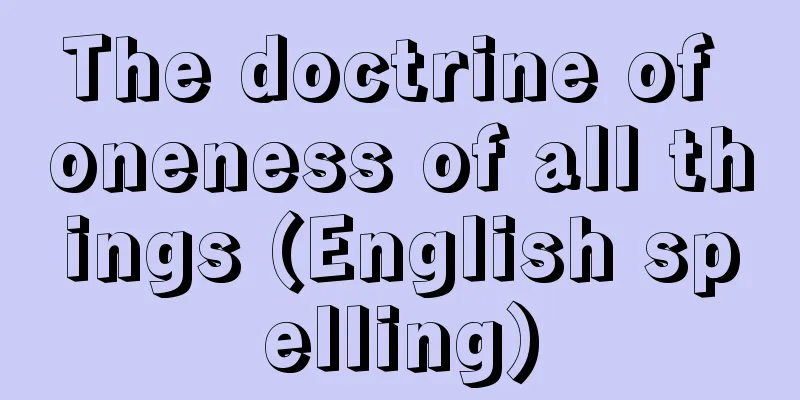The doctrine of oneness of all things (English spelling)

|
A theme in the history of Chinese thought. It is seen in Zhuangzi, Huiyuan, and others, but was particularly emphasized by Cheng Hao (Mingdao) of the Northern Song Dynasty. It attracted particular attention in intellectual circles after Wang Yangming advocated it as part of the philosophy of conscience during the Ming Dynasty. Its logical basis is that all things are composed of qi, and it calls for awakening to love for all things and realizing the true nature of all things. In terms of human society, it is a utopian idea that calls for each individual to be independent in character, extend love to others, and realize a society of great harmony. Source: Heibonsha World Encyclopedia, 2nd Edition Information |
|
中国思想史上の主題。荘子,慧遠などにもみられるが,北宋の程顥(ていこう)(明道)が特に強調した。思想界でひときわ注目されたのは明代に王陽明が良知心学の一環として主張して後のことである。万物ともに気によって構成されていることが論理的根拠とされ,万物への愛に覚醒し万物の本質が現実化することを求める。人間社会に即していえば,個々の人が人格的に自立して他者に愛を及ぼし,大同社会を実現することを求めるユートピア思想である。
出典 株式会社平凡社世界大百科事典 第2版について 情報 |
Recommend
Miracle Story - Kiseki Monogatari
…We must not forget that famous words such as “Bl...
Crisis management
The concept of a crisis varies widely depending o...
Cerebrospinal fluid
Cerebrospinal fluid, also called cerebrospinal fl...
Uchibu (inner pawn)
(1) A land term used in the Edo period. It refers ...
Angus Og (English spelling) AngusOg
Danu was the goddess of fertility and wealth, Lug...
Pascal's Theorem
A necessary and sufficient condition for six poin...
Stock Dividends - Kabushiki Ito
A corporation's profit dividends are incorpora...
Takanori Kojima
Year of birth: Year of birth and death unknown. Mi...
Between the Times - Between the Times (English)
It was originally the title of a short essay by th...
Smith, W. (Inventor) (English spelling) SmithW
...Although the term is now used to refer to a po...
Taejo - Taiso
(1) Patriarchs In Catholicism, the term refers to ...
Company
...For this reason, the internal relations of a c...
Kannatei Onitake
Years of birth: Years of birth and death unknown. ...
Koma Fukushin - Koma no Fukushin
Year of death: Enryaku 8.10.17 (789.11.8) Year of ...
Financial statements
Income statements, balance sheets, cash flow stat...









